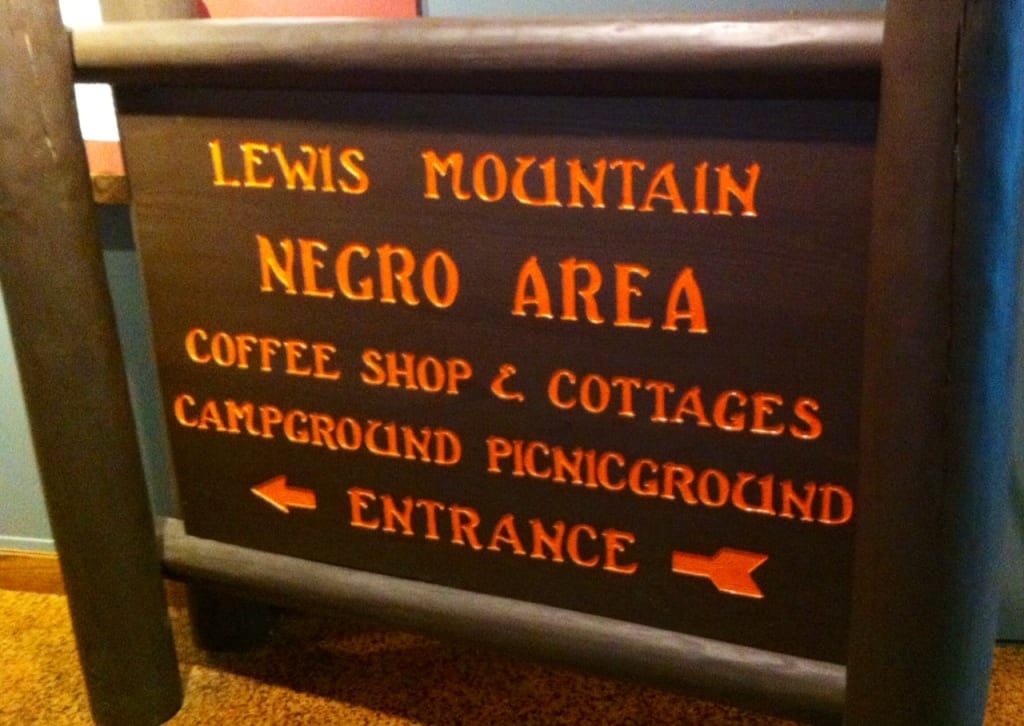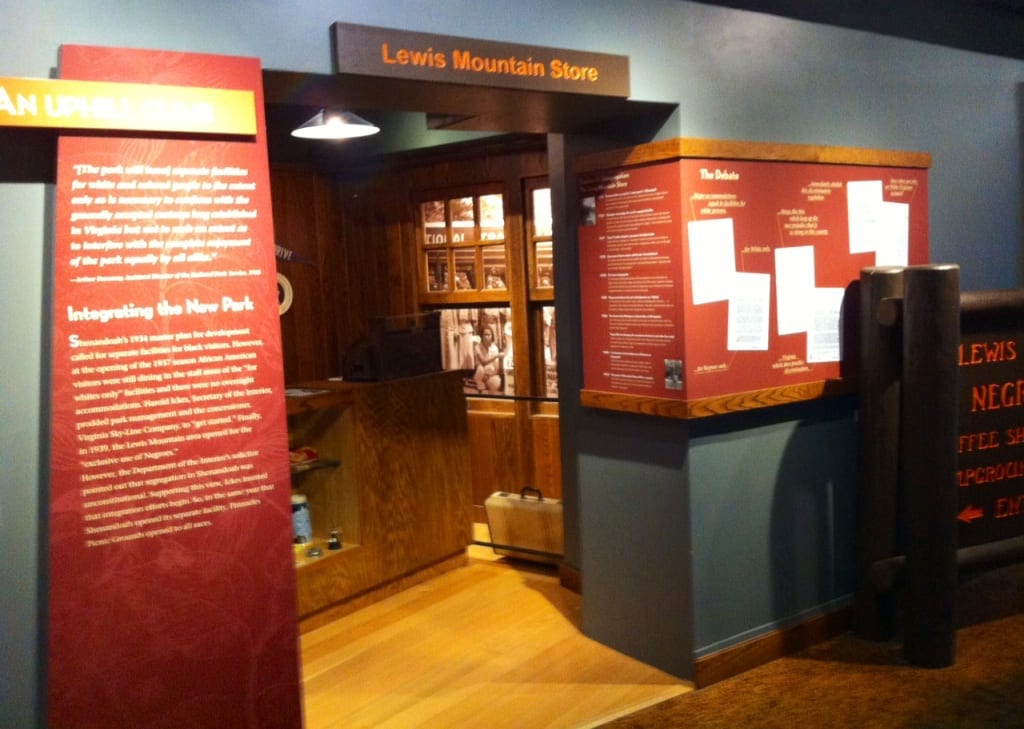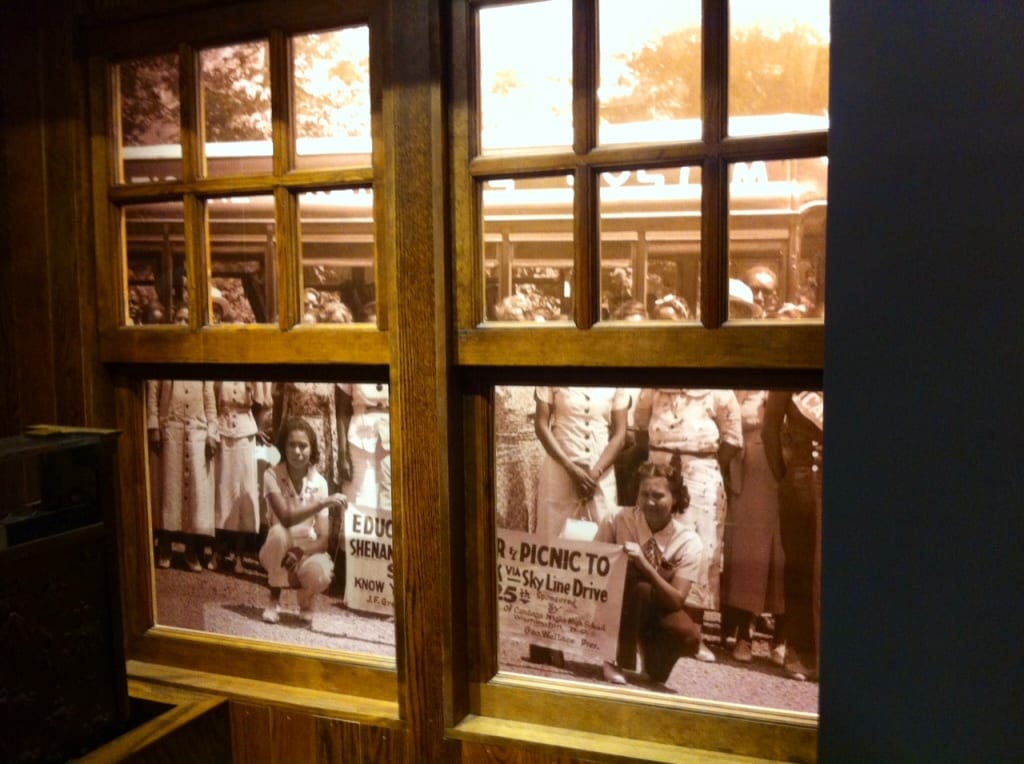Watch the Video –
By Glynn Wilson –
LEWIS MOUNTAIN, Va. – When the National Park Service was established in 1935 and the U.S. Department of the Interior along with President Franklin Roosevelt’s Civilian Conservation Corps began building roads, retaining walls, campgrounds and trails to get ready for visitors, there was an interest on the part of President Roosevelt and Interior Secretary Harold Ickes in accommodating African-Americans in the park. But they faced strong political resistance from politicians in the state of Virginia.
“It’s a very interesting story because of the collision of the different attitudes and feelings toward segregation during that time and the fact that Shenandoah National Park was in Virginia, which at the time of its establishment, was a Jim Crow state. So there was a little bit of a tug of war that went on there,” said Claire Comer, an interpretive specialist with the National Park Service who has spent time researching the story over the past few years. “Ickes had a passionate view toward segregation, desegregation and civil rights.”
In fact, it was Ickes who arranged for popular African American opera singer Marian Anderson to perform on the steps of the Lincoln Memorial after she was banned from performing at Washington’s Constitution Hall because of her race.
“He pushed quite a bit for Shenandoah National Park management to take the steps necessary to welcome African American visitors,” Comer said.
The engineer then, equivalent of the superintendent today, and the Virginia Skyline Company, were part of the resistance, so they ended up building a separate, segregated campground at Lewis Mountain that was billed as the first “Negro” campground in the National Park system.
It opened in 1938, but like a lot of things in those days, everything came to a standstill because the nation’s attention became focused on World War II.
Yet the tug of war continued, Comer said, “Because Ickes didn’t want separate facilities. He wanted full integration.”
Roosevelt and First Lady Eleanor Roosevelt were for integration as well.
“But the state of Virginia did not feel that way,” Comer said. “From the state’s viewpoint that meant ‘separate but equal.’”
The fight against integration was led by newspaper publisher and politician Harry F. Byrd, a known racist and avowed white supremacist. He fought for a “separate but equal” campground along with the Virginia Skyline Company, contracted to run the campgrounds and restaurants in the park, which threatened to break the contract and leave the park if they had to serve “negroes.” Due to the engineer’s vehement opposition to integration, Ickes had him transferred, Comer said.
“Eventually, though, in the early 1950s, Shenandoah became a fully integrated national park,” Comer said. “It was the first public facility that we know of that became fully integrated a full decade before the Civil Rights Act of 1964 required it.”
She said today’s park personnel are proud of that and respectful of Secretary Ickes for his work toward that, and while doing research for an exhibit at the Big Meadows visitor’s center, Ms. Comer found out how “Lewis Mountain was a fantastic place.”
They have put together oral histories from many who worked there and visited back in the day, including the niece of general manager Tutt, who said his greatest challenge was keeping the white people out. They came for the great food, especially the pies.
President Truman, who made the controversial decision to integrate the U.S. Armed forces, visited the campground while in office to see Chester A. Franklin, publisher of the Kansas City Call, a well respected and widely read black newspaper in those days. Franklin liked to camp at Lewis Mountain.
“He had supported Truman and they became friends,” Ms. Comer said.
So Truman, along with Five Star General Omar Bradley, came to Lewis Mountain and had dinner with Franklin.
“It’s a place full of history,” Ms. Comer said. “The voices there speak of a really fun and exciting place to be.”
It was popular with local African Americans who came for church picnics because it was one of the few public places they could gather in those days, she said. “It was a place they felt free and happy and at home at a time when that was not the case everywhere.”
More Photos
















